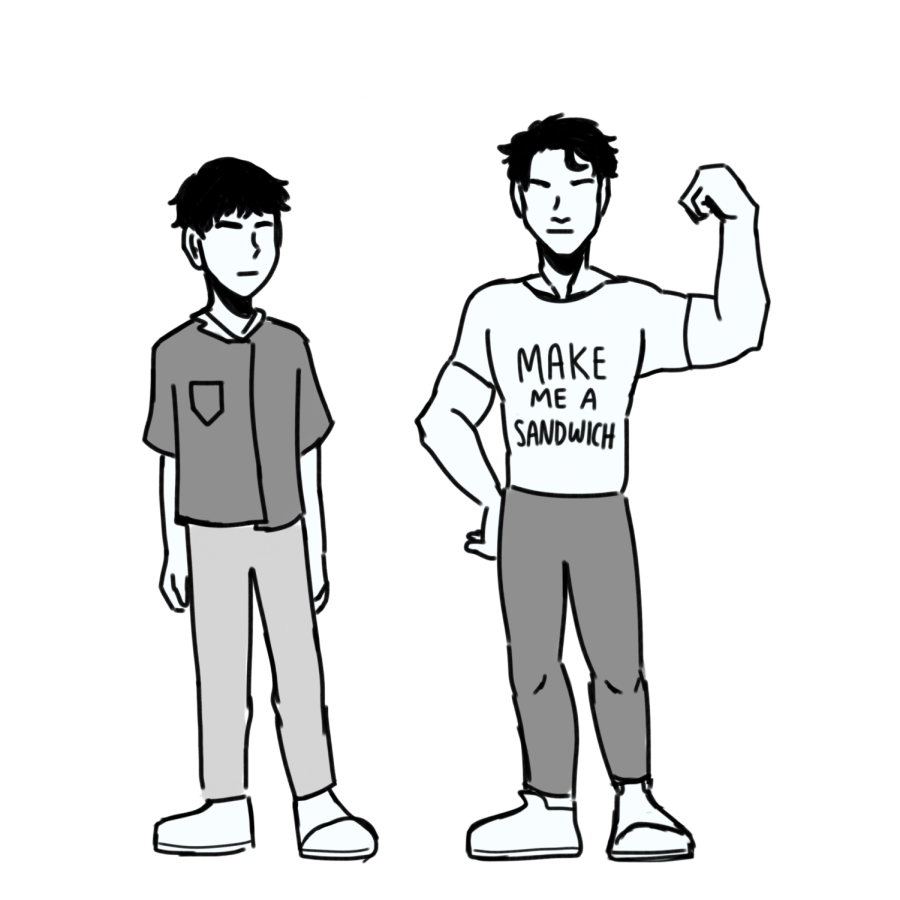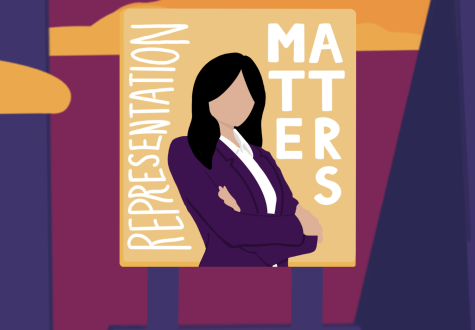Toxic masculinity: a subtle social phenomenon
Tough. Intimidating. Unapologetic. These are traits that society instills in men, which often perpetuates toxic masculinity. The idea of toxic masculinity is widely misunderstood, and the problems that come with it are so ingrained into society that its effects often go unnoticed. This social phenomenon can be defined as a harmful set of behaviors and ideas based on certain stereotypes associated with and expected of men. These stereotypes manifest in several ways, ranging from boys being told that men do not cry, to people forcefully pushing the belief that women belong in the kitchen and are sensitive and inferior. Toxic masculinity has become more prevalent in today’s society, largely due to social media and the freedom granted to anyone to promote their beliefs to a wide audience. Cases of influencers exhibiting or supporting toxic behavior include people such as Andrew Tate, Sneako, Adin Ross and iShowSpeed. They each hold a large influence over their respective audiences, the majority of which are easily impressionable teenage boys. With how accessible social media is today, the sheer amount of toxic masculinity displayed and encouraged on such platforms is concerning.
A majority of toxic masculinity is rooted in misogynistic ideologies that have existed for generations, and largely contribute to the role women play in households across the globe. For centuries, women have been considered caretakers, nurturers and motherly figures by default. Additionally, the role of motherhood has translated into other areas of the household, creating the belief that mothers are responsible for cooking, cleaning and child care all the time. While some women may prefer being the head of the household in this sense, many agree that it is a lot of work that can be shared between spouses rather than carried by one individual. This is where toxic masculinity comes into play; social media influencers have time and time again perpetuated the belief that cooking and cleaning are all a woman is good for. It is a sentiment that has made its way into the mindsets of youth everywhere. By labeling certain activities as feminine, we are limiting those experiences to girls and creating a taboo on them for everyone else. These labels are taught in environments ranging from home to school, dissuading children from exploring certain hobbies or skills simply because they are not ‘manly’ enough. These include cooking, cleaning and many other necessary life skills. Moreover, we must acknowledge that women are pillars of our society; limiting them to certain areas of life solely based on stereotypes has the potential to prevent people from discovering their passions and interests without judgement.
Many of the results of toxic masculinity are subtle, which often leads to drastic consequences, such as men internalizing their emotions. This is a key factor of male suicide, which, according to the CDC, makes up 80% of all suicides worldwide. The social expectation of an outwardly tough and dispassionate appearance imposed on men prevents them from having a safe outlet to properly communicate and deal with their emotions, leading to a trapped feeling that is often accompanied by suicidal thoughts. It is incredibly harmful and is commonly rooted in more traditional households, where young boys are surrounded by these teachings. However, it is so common in men that most people fail to even realize the corresponding issues, which essentially promotes its continuation.
A commonality among teenage boys is to refer to something distasteful as gay. Often contributing to misogyny, these actions are regarded as ‘distasteful,’ and typically refer to something feminine. These so-called feminine actions include showing platonic affection between two males, which urges men to be less physically affectionate. This fear of being ridiculed prevents men from expressing and learning to deal with certain emotions, only advancing emotional repression and mental conflict. The use of the term “gay” in this context carries a negative connotation, which is not only an attack on femininity, but homosexuality too, as it exerts an internal — or in many cases, external — homophobic mindset. Additionally, masculinity is regarded as something that must be aggressive and dominant. This pushes many men to behave offensively towards others — leading to not only verbal, but sometimes physical abuse as well. These behaviors are harmful towards men, women and people of the LGBTQ+ community.
Toxic masculinity is incredibly widespread, and has been contributing immensely to many problems in society. It is an issue that cannot be fixed by just a few people, but requires an entire community to accept that it is wrong. Despite the grip it has on society, the damage is not irreversible. A change in vocabulary and an open mind is a surefire way for anyone to contribute to solving this global problem. If communities come together to counter it, we can create a better and brighter future.














